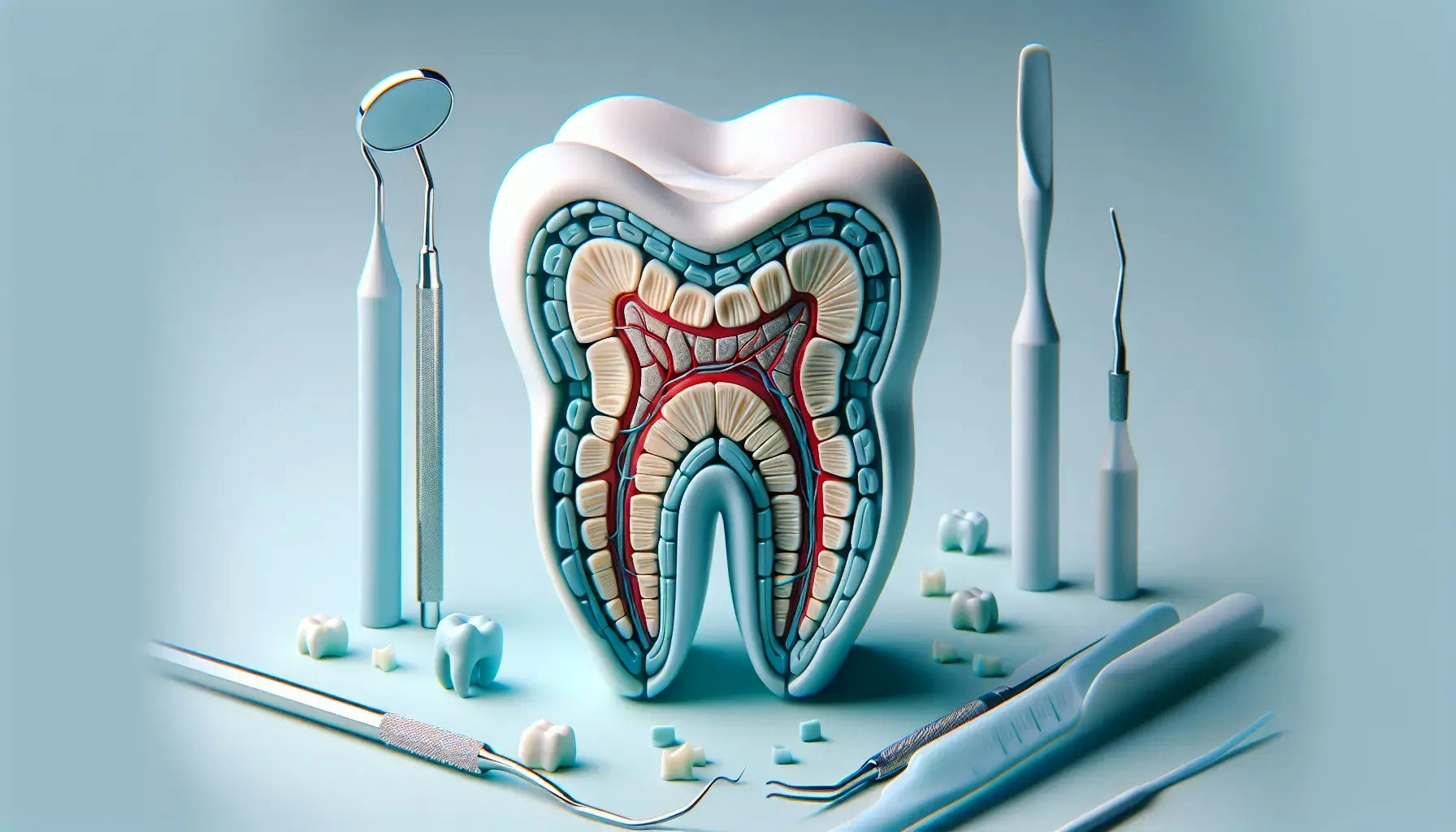Tooth sensitivity can be a real pain, literally and figuratively. It can turn the simple pleasures of life, like enjoying a hot cup of coffee or a cold ice cream, into a painful ordeal. This blog post aims to provide a comprehensive guide on dealing with tooth sensitivity. We'll explore the causes, prevention strategies, and effective treatment options.
Understanding Tooth Sensitivity
Tooth sensitivity, also known as dentin hypersensitivity, is a common dental problem. It's a condition that can cause temporary, sharp pain in your teeth when they come into contact with certain stimuli, such as hot, cold, sweet, or acidic foods and drinks.
The root cause of tooth sensitivity is the exposure of dentin, the part of the tooth that covers the nerve. Under normal circumstances, dentin is protected by enamel, the hard outer layer of the tooth. However, if the enamel gets worn down or the gum line recedes, dentin can become exposed, leading to sensitivity.
Several factors can contribute to the wearing down of enamel and the recession of gums. These include aggressive tooth brushing, acidic foods and drinks, tooth grinding, gum disease, and certain dental procedures. Understanding these factors is the first step in dealing with tooth sensitivity.
Preventing Tooth Sensitivity
Prevention is always better than cure, and this holds true for tooth sensitivity as well. There are several measures you can take to prevent the onset of tooth sensitivity.
One of the most effective prevention strategies is maintaining good oral hygiene. Regular brushing and flossing can keep your teeth and gums healthy, preventing gum disease and enamel wear. However, it's important to brush gently to avoid damaging your enamel and gums.
Another key prevention strategy is to watch your diet. Acidic foods and drinks, such as citrus fruits and soda, can erode your enamel. Try to limit your intake of these foods and drinks, and rinse your mouth with water after consuming them.
If you grind your teeth, consider getting a mouth guard. Teeth grinding can wear down your enamel, exposing the dentin. A mouth guard can protect your teeth from the damaging effects of grinding.
Recognizing Symptoms of Tooth Sensitivity
Recognizing the symptoms of tooth sensitivity is crucial for timely treatment. The most common symptom is a sharp, sudden pain in response to certain stimuli, such as hot, cold, sweet, or acidic foods and drinks.
The pain is usually temporary, lasting for a few seconds to a minute. However, it can be quite intense, causing discomfort and affecting your quality of life.
In some cases, tooth sensitivity can also be a symptom of a more serious dental problem, such as a cavity or a cracked tooth. If you're experiencing severe or persistent tooth sensitivity, it's important to seek professional help.
Treatment Options for Tooth Sensitivity
If you're dealing with tooth sensitivity, there are several treatment options available. The right treatment for you depends on the severity of your sensitivity and the underlying cause.
For mild to moderate sensitivity, over-the-counter desensitizing toothpaste can be an effective solution. These toothpastes contain compounds that help block the transmission of pain signals from the tooth surface to the nerve.
If over-the-counter solutions aren't enough, your dentist can provide more advanced treatments. These may include fluoride gel, desensitizing agents, dental sealants, or even a root canal in severe cases.
When to Seek Professional Help
While mild tooth sensitivity can often be managed at home, it's important to seek professional help if your sensitivity is severe, persistent, or accompanied by other symptoms.
If you're experiencing tooth sensitivity, it's a good idea to discuss it with your dentist during your regular check-up. Your dentist can help identify the cause of your sensitivity and recommend the best treatment options.
In some cases, tooth sensitivity can be a sign of a more serious dental problem, such as a cavity, a cracked tooth, or gum disease. If you're experiencing severe or persistent tooth sensitivity, don't hesitate to make an appointment with your dentist.
Living with Tooth Sensitivity
Living with tooth sensitivity can be challenging, but it's certainly manageable. With the right prevention strategies and treatment options, you can reduce your sensitivity and improve your quality of life.
Remember to maintain good oral hygiene, watch your diet, and seek professional help when necessary. With these measures, you can enjoy your favorite foods and drinks without the fear of pain.
Wrapping Up: Conquering Tooth Sensitivity
Tooth sensitivity is a common problem, but it doesn't have to ruin your life. By understanding the causes, recognizing the symptoms, and implementing prevention strategies, you can keep tooth sensitivity at bay. And if you're already dealing with sensitivity, remember that there are effective treatment options available. Don't let tooth sensitivity rob you of life's simple pleasures. Take action today and start your journey towards a pain-free life.

